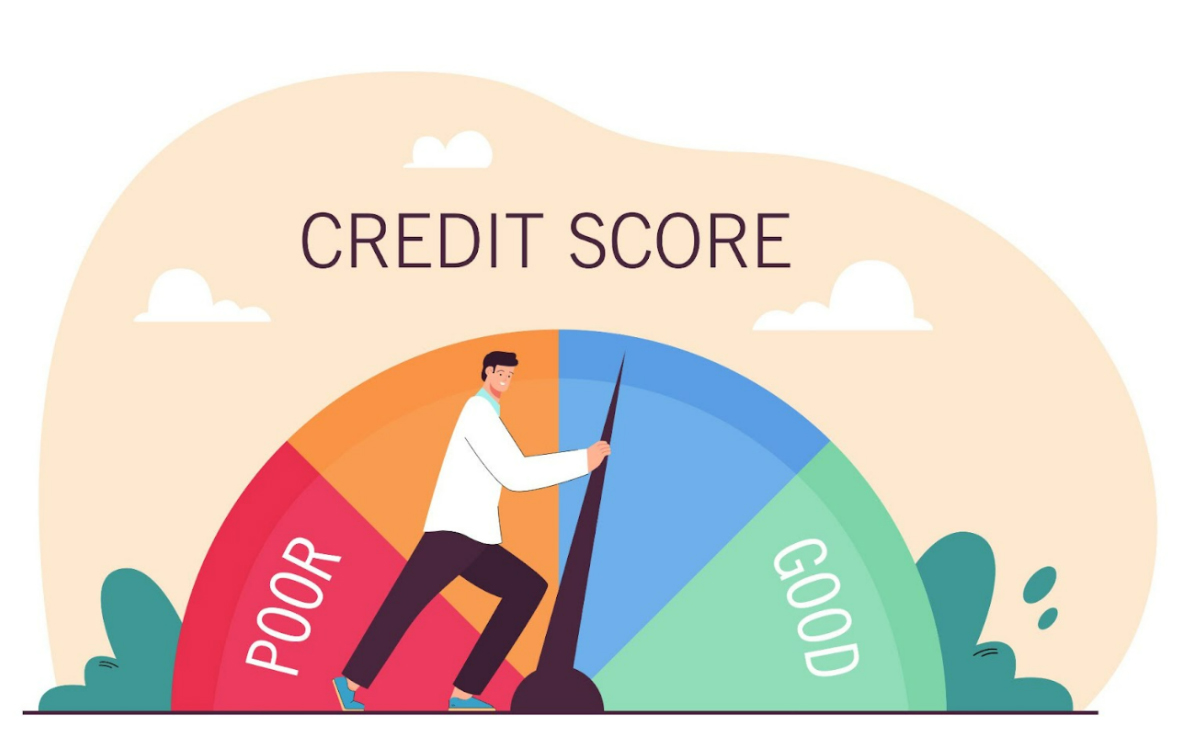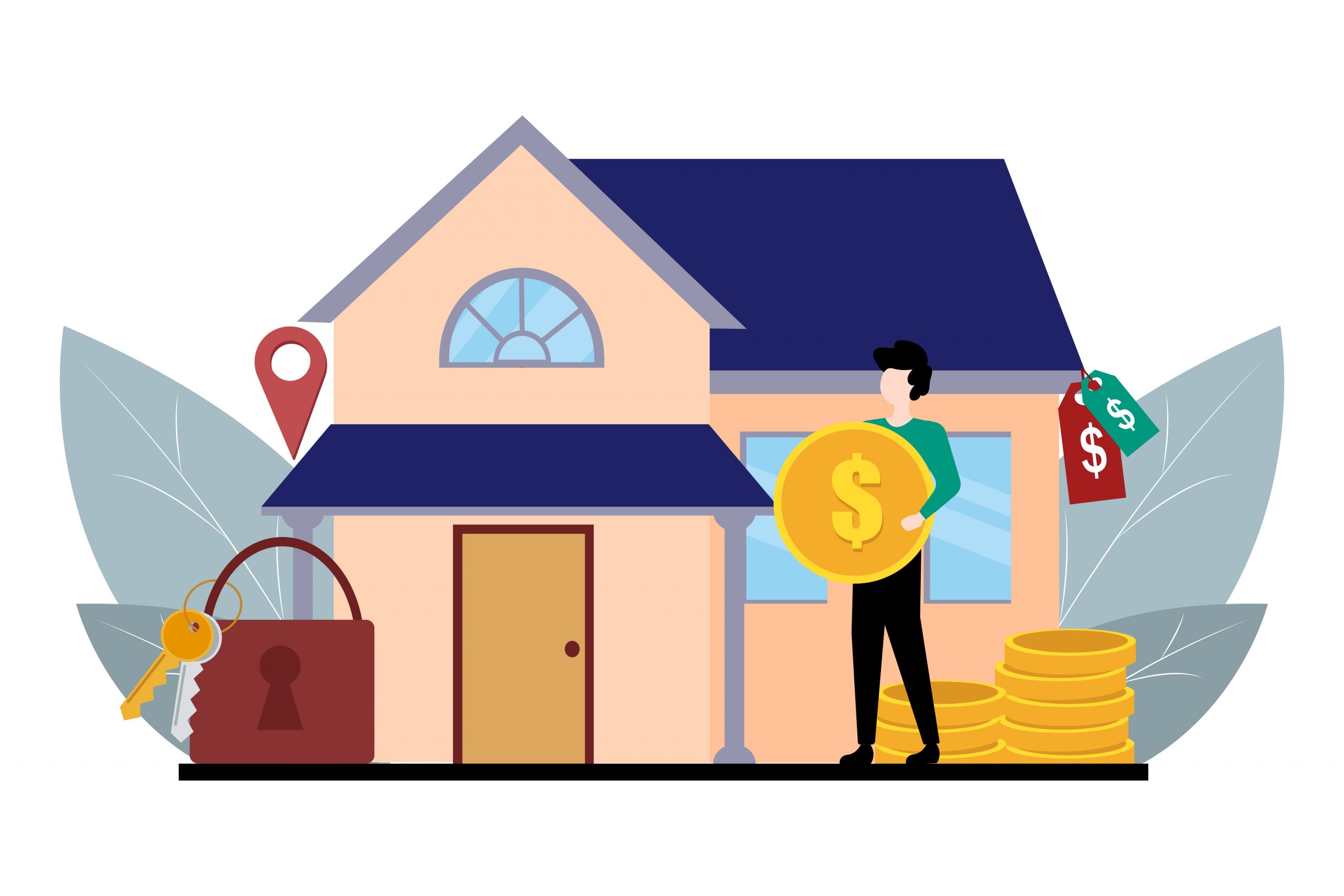How to Boost Your Credit Score in 5 Simple Steps For Better Home Loan Deals
Are you dreaming of buying your dream home but worried about your credit score? Well, worry no more! In this article, we’ll show you how to boost your credit score in 5 simple steps, so you can secure better home loan deals.
Having a good credit score is crucial when it comes to getting approved for a mortgage and getting favorable interest rates. But don’t be anxious– improving your credit score doesn’t have to be a daunting task.
With our step-by-step guide, you’ll learn practical strategies that can help you increase your credit score and improve your overall financial health. From paying off debts and disputing errors on your credit report to diversifying your credit and managing your credit utilization, we’ve got you covered.
By following these simple steps, you’ll not only enhance your chances of getting approved for a home loan; you’ll also save money in the long run. So, let’s get started on your journey to financial freedom and make your dream of homeownership a reality!
Understanding the Importance of a Good Credit Score
Having a good credit score is crucial when it comes to getting approved for a mortgage and getting favorable interest rates. Lenders use your credit score to assess your creditworthiness and determine whether you are a low-risk borrower. The higher your credit score, the more likely you are to be approved for a home loan and receive more competitive interest rates.
A good credit score not only increases your chances of getting approved for a home loan but also saves you money in the long run. With a higher credit score, you can enjoy lower interest rates, which translates to lower monthly mortgage payments. Additionally, a good credit score can give you access to a wider range of loan options, allowing you to choose the best deal for your needs.
How Your Credit Score Impacts Your Ability to Get a Home Loan
Before we dive into the steps to boost your credit score, it’s important to understand how your credit score affects your ability to secure a home loan. Lenders use your credit score as a benchmark to assess your creditworthiness and determine the level of risk they are willing to take when lending you money.
A low credit score can make it difficult to get approved for a mortgage or result in higher interest rates. Lenders may view you as a higher risk borrower and be less willing to offer you favorable loan terms. On the other hand, a high credit score can open doors to better loan deals, lower interest rates, and more flexible repayment options.
Now that we understand the importance of a good credit score and how it impacts your ability to get a home loan, let’s dive into the 5 simple steps to boost your credit score.
Step 1: Review Your Credit Report and Identify Any Errors
The first step in improving your credit score is to review your credit report and identify any errors or inaccuracies. Your credit report contains information about your credit history and is used to calculate your credit score. It’s essential to ensure that the information on your credit report is accurate, as errors can negatively impact your credit score.
Start by obtaining a copy of your credit report from one of the major credit bureaus – Equifax, Experian, or TransUnion. Review the report carefully, paying attention to any discrepancies or incorrect information. Look for inaccuracies in your personal information, account details, and payment history.
If you find any errors, you have the right to dispute them with the credit bureaus. Submit a dispute letter explaining the error and provide any supporting documentation. The credit bureau will investigate your claim and correct any errors if found to be valid. This can potentially boost your credit score by removing negative information or correcting inaccuracies.
Step 2: Pay Off Outstanding Debts and Reduce Your Credit Utilization Ratio
One of the most significant factors influencing your credit score is your credit utilization ratio – the amount of credit you are currently using compared to your total available credit. A high credit utilization ratio can negatively impact your score, while a low ratio can have a positive effect.
Start by paying off any outstanding debts that you have. Focus on high-interest debts first, such as credit card balances or personal loans. Paying off these debts will not only reduce your overall debt load but also improve your credit utilization ratio.
If you have multiple credit cards with balances, consider consolidating your debt onto one card or taking out a personal loan to pay off the balances. This can help you reduce your credit utilization ratio and simplify your debt repayment.
Remember to avoid closing unused credit card accounts after paying off the balances. Closing accounts can actually hurt your credit score by reducing your available credit, thus increasing your credit utilization ratio.
Step 3: Establish a Positive Payment History by Paying Bills on Time
Payment history is a crucial component of your credit score, accounting for approximately 35% of the total score. Late payments or missed payments can have a significant negative impact on your credit score. Establishing a positive payment history is essential for improving your credit score.
Make it a priority to pay all your bills on time, including credit card payments, utility bills, and loan repayments. Set up automatic payments or reminders to ensure you never miss a due date. Consistently making on-time payments demonstrates your reliability as a borrower and can boost your credit score over time.
If you have any past late payments or missed payments on your credit report, focus on bringing those accounts up to date. Contact the creditors and negotiate a payment plan or request to have the negative information removed from your credit report once you have made the necessary payments.
Step 4: Avoid Opening New Credit Accounts or Taking on Additional Debt
While it may be tempting to open new credit accounts or take on additional debt, especially if you are trying to improve your credit score, it’s best to avoid these actions. Opening new credit accounts can temporarily lower your credit score due to the hard inquiries made by lenders when reviewing your creditworthiness.
Furthermore, taking on additional debt can increase your credit utilization ratio and make it more challenging to manage your finances effectively. Instead, focus on maintaining your existing credit accounts responsibly and paying off any outstanding debts.
If you already have a sufficient number of credit accounts, resist the urge to open new ones. Instead, focus on using your existing credit responsibly and making timely payments to improve your credit score steadily.
Step 5: Monitor Your Credit Score Regularly and Make Adjustments as Needed
Once you’ve taken the necessary steps to improve your credit score, it’s important to monitor your progress regularly. Keep an eye on your credit report and credit score to ensure that your efforts are paying off. Regular monitoring allows you to identify any potential issues or errors and take corrective action promptly.
You can sign up for credit monitoring services that provide regular updates on your credit score and alert you to any changes or suspicious activities. Additionally, take advantage of the free annual credit reports provided by the major credit bureaus to review your credit history and ensure its accuracy.
If you notice any negative changes or inaccuracies on your credit report, take immediate action to rectify the situation. Addressing these issues promptly can help prevent further damage to your credit score and ensure that you continue on the path to improving your creditworthiness.
How a Higher Credit Score Can Lead to Better Home Loan Deals
Now that you’ve learned the five steps to boost your credit score, it’s important to understand how a higher credit score can lead to better home loan deals. Lenders view borrowers with higher credit scores as less risky and are more likely to offer them favorable loan terms.
With a higher credit score, you can enjoy lower interest rates, which can save you a significant amount of money over the life of your mortgage. Lower interest rates also translate to lower monthly mortgage payments, making home ownership more affordable.
Additionally, a higher credit score can give you access to a wider range of loan options, allowing you to choose the best deal for your needs. You may qualify for special programs or incentives offered to borrowers with excellent credit scores, further enhancing your home buying experience.
By taking the time to improve your credit score before applying for a home loan, you can position yourself as a strong borrower and increase your chances of getting approved for a mortgage with favorable terms.
Conclusion
Boosting your credit score doesn’t have to be a daunting task. By following the five simple steps outlined in this article, you can gradually improve your creditworthiness and secure better home loan deals. From reviewing your credit report for errors to paying off outstanding debts and establishing a positive payment history, each step plays a crucial role in enhancing your credit score.
Remember to monitor your credit score regularly, make adjustments as needed, and implement additional tips to further improve your creditworthiness. With a higher credit score, you’ll not only enhance your chances of getting approved for a home loan but also save money in the long run.
So, let’s get started on your journey to financial freedom and make your dream of homeownership a reality!









